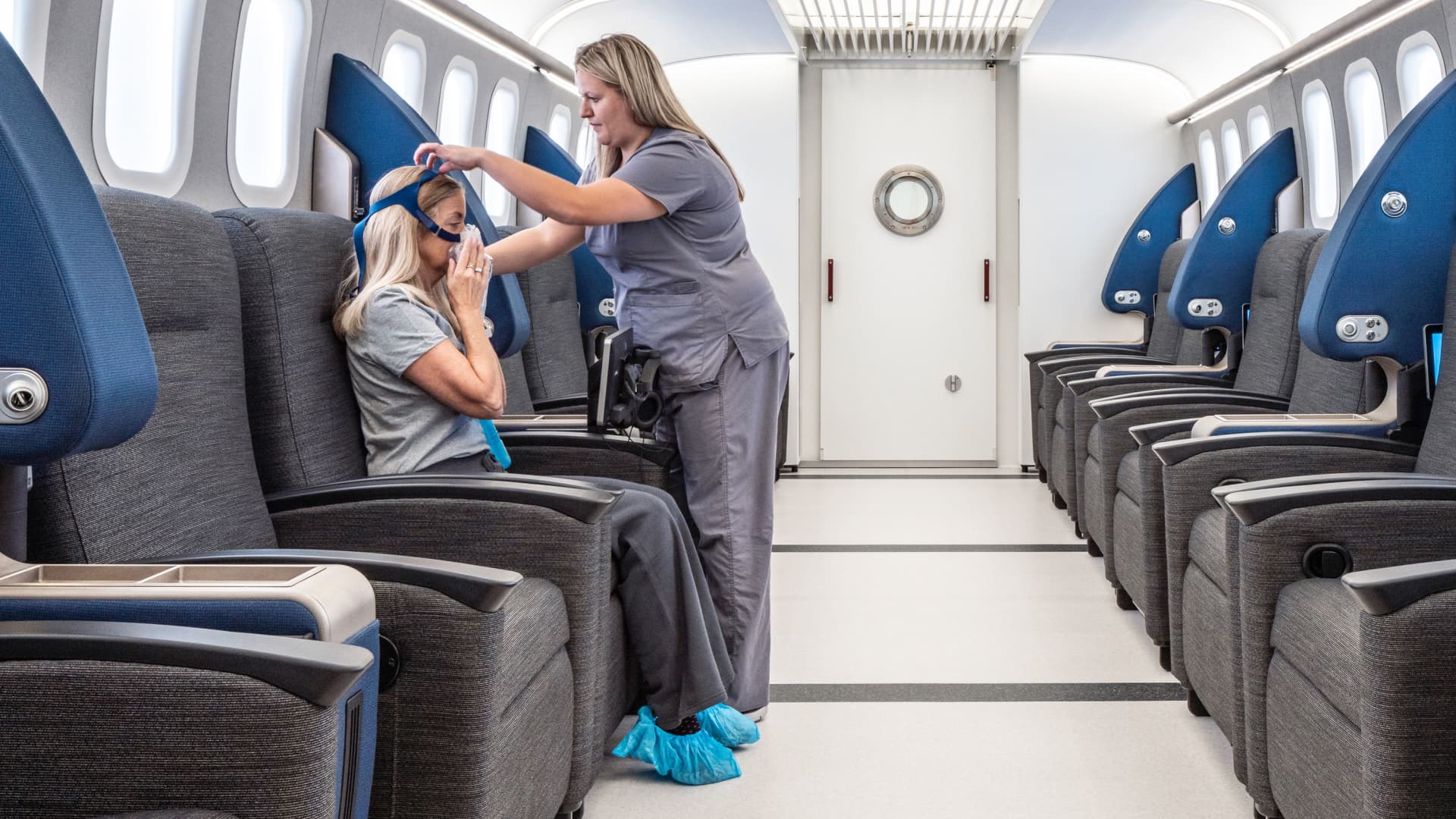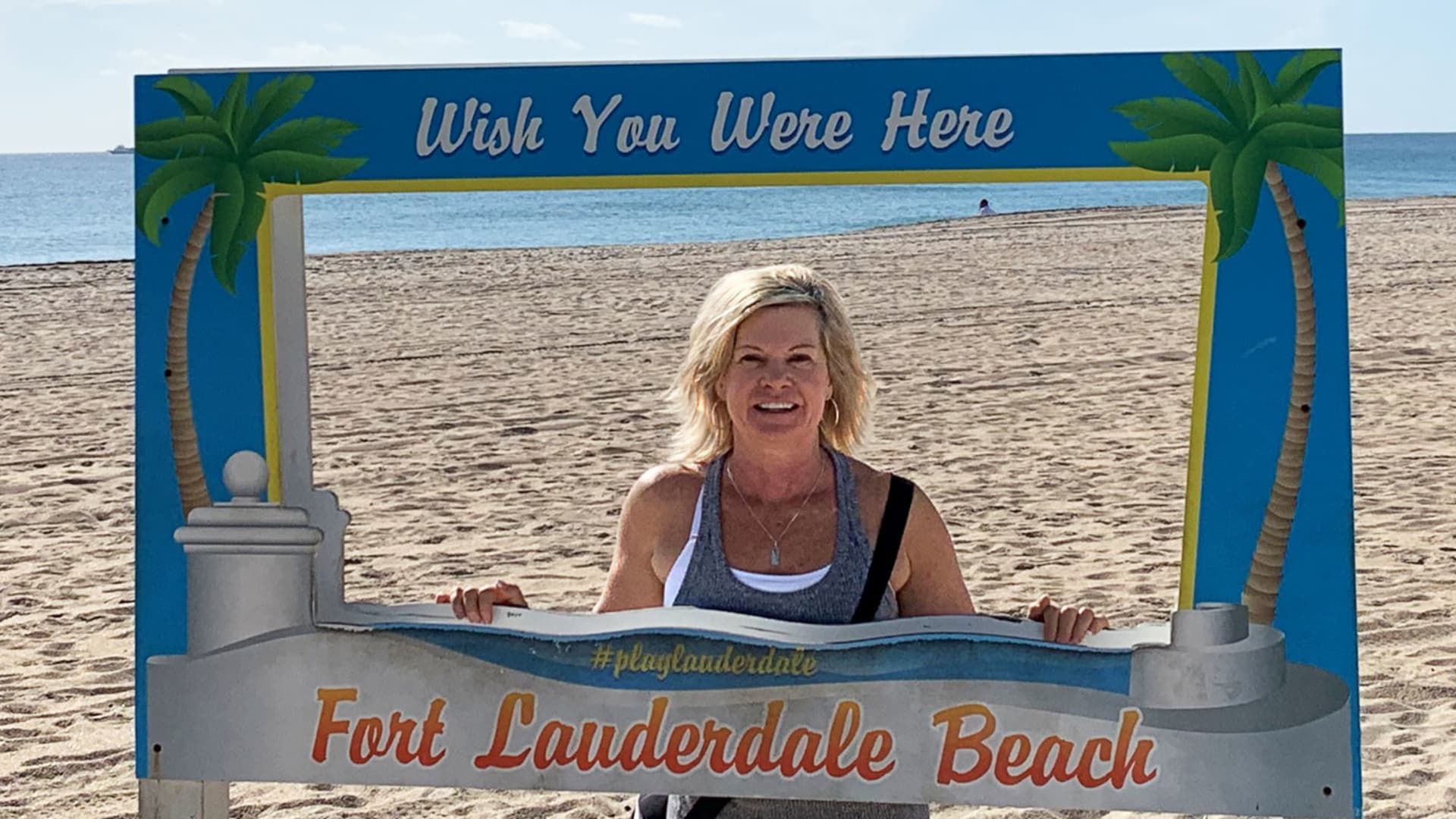
For the roughly 23 million Americans suffering from long Covid symptoms, an assortment of options claim to bring some relief — from stem-cell treatments and naturopathic medicine to an obscure process called "blood-washing" only available in Cyprus.
One in particular appears promising for some: hyperbaric oxygen therapy. It involves breathing 100% pure oxygen — up to three times higher than air's normal oxygen levels — in a pressurized chamber to enable the body to repair cognitive and physical damage.
Some long Covid patients swear by the treatment, with one describing it to CNBC Make It as a "total game changer."
"It felt like I was almost human again," says Danielle Gillan, a Lake Nona, Florida, resident who completed three months of the therapy last year after battling debilitating symptoms like memory loss, confusion and blurred vision.
Get top local stories in DFW delivered to you every morning. Sign up for NBC DFW's News Headlines newsletter.
But hyperbaric oxygen therapy's success in treating long Covid appears to be largely anecdotal — with limited data on why it works, how effective it is, how long its healing effects last, whether it alleviates some symptoms better than others or if it carries unforeseen consequences.
That's a huge stumbling block for many medical experts, who caution against viewing it as a universal remedy for long Covid. It's an expensive bet to make, too: The therapy, when used to treat long Covid, is only available at private facilities, some of which charge more than $50,000 for the experience.
"We're using a treatment that's complex and not fully understood to treat a medical condition that's also new and complex," says Dr. Venita Chandra, a vascular surgery clinical professor at Stanford University. "The level of challenge that Covid brought onto society has left people reaching for anything, but a lot more data is needed before this becomes a well-established treatment for long Covid."
Money Report
How hyperbaric oxygen therapy works
Hyperbaric oxygen therapy is only new when it comes to long Covid: The U.S. Food and Drug Administration has previously cleared it for disorders like decompression sickness, carbon monoxide poisoning and radiation injuries.
In pressurized medical-grade chambers, patients alternate between breathing pure oxygen through a mask and regular air. When you go from the former to the latter, your brain interprets the drop in pressure as a lack of oxygen, says Dr. Mohammed Elamir, a physician at The Villages, Florida-based Aviv Clinics.
That triggers stem cell production and blood vessel growth in the brain, which helps the body repair itself in a variety of ways, Elamir says.

The therapy isn't FDA-approved for long Covid, but that doesn't stop private facilities from offering it as a treatments. It only means insurance companies can't help cover the cost.
At Aviv, long Covid patients sign up for 40 to 60 two-hour sessions — once a day, five days a week, for eight to 12 weeks. The clinic charges $36,000 to $51,000 for those 40 to 60 sessions, including personalized care outside of chamber sessions, Elamir says: meetings with physiologists and neurologists, dietary plans, brain imaging and medical assessments.
Some patients are medically ineligible, Elamir says — like those with recent ear surgeries, who might struggle with those air pressure drops. Most of the ones who do get treated have reported improved long Covid symptoms, the clinic adds.
A lack of data leaves unanswered questions
Lynette Milakovich, a retiree in The Villages, experienced a range of long Covid symptoms before starting hyperbaric oxygen therapy. She had insomnia, felt "electrical shocks" all over her body and experienced brain fog that made it difficult to process and remember things, among other symptoms.
After completing three months' worth of sessions at Aviv in December 2022, Milakovich experienced improvements in her cognitive function, breathing and sensitivity to light and sound, she says.
There's limited data on how long those benefits might last, but Milakovich says she hopes to keep healing post-therapy in the coming months.

Some long Covid patients may benefit more from the treatment than others. That's because a variety of underlying physiological conditions — like chronic lung issues, for example — can "drive different manifestations of long Covid," says Dr. Lucy Horton, an infectious disease physician who founded the long Covid clinic at UC San Diego Health.
The only way to better understand the treatment's potential benefits is through "bigger and broader studies," Horton says.
Elamir points to a 2022 study from Tel Aviv University, which examined 72 long Covid patients with cognitive symptoms like brain fog that lasted for at least three months. Half underwent hyperbaric oxygen therapy for two months, while the other served as a control group.
Patients in the first group reported reduced brain fog, improved memory and attention, more energy and less pain. Those in the control group didn't report any significant improvements.
The study acknowledged its own limitations: The sample size was "relatively small," and researchers only observed the treatment's effects for one to three weeks after each patient's final session. Any longer-term benefits or drawbacks remain to be seen.
Clinics like Aviv are believers. The study will "surely" lead other researchers to confirm those positive findings, an Aviv spokesperson says.
Why the new long Covid treatment is so expensive
Even if hyperbaric oxygen therapy proves effective, its cost is a huge barrier to entry — especially when long Covid symptoms make it difficult to work 40 hours per week.
Nora Lieberman, a gallery coordinator in Washington D.C., says she's had trouble breathing, fatigue and cognitive impairments that make it difficult to complete normal tasks. She paid nearly $3,000 for ten sessions at a Restore Hyper Wellness location in Richmond, Virginia, in June 2021.
The treatment was "reenergizing," but she eventually couldn't afford the recommended number of sessions, she says. "For many [Covid] long haulers, including myself, financial freedom is gone because we can't work full-time."
Her symptoms returned after she halted the treatment, she says. It's unclear whether that would've happened if she'd undergone her full allotment of sessions.
Some clinics defray costs for patients who can't shoulder the hefty expense. Aviv, for example, offers hyperbaric oxygen therapy at reduced cost "to those who wouldn't normally have access to our cutting-edge program," according to its website.
The application requests tax and income documents demonstrating a financial inability to pay the clinic's standard prices.
But for most people, it'll only get less expensive when insurance companies can cover some of the cost, which hinges on FDA approval for treating long Covid. "This is something we are pushing towards," says an Aviv spokesperson.
It won't happen without positive data emerging from larger-scale studies, says Dr. Jonathan Whiteson, an associate professor of rehabilitation medicine at NYU Langone Health.
A few ongoing studies exist, but there's no concrete timeline for when they'll yield data, Horton adds.
DON'T MISS: Want to be smarter and more successful with your money, work & life? Sign up for our new newsletter!
Check out:






